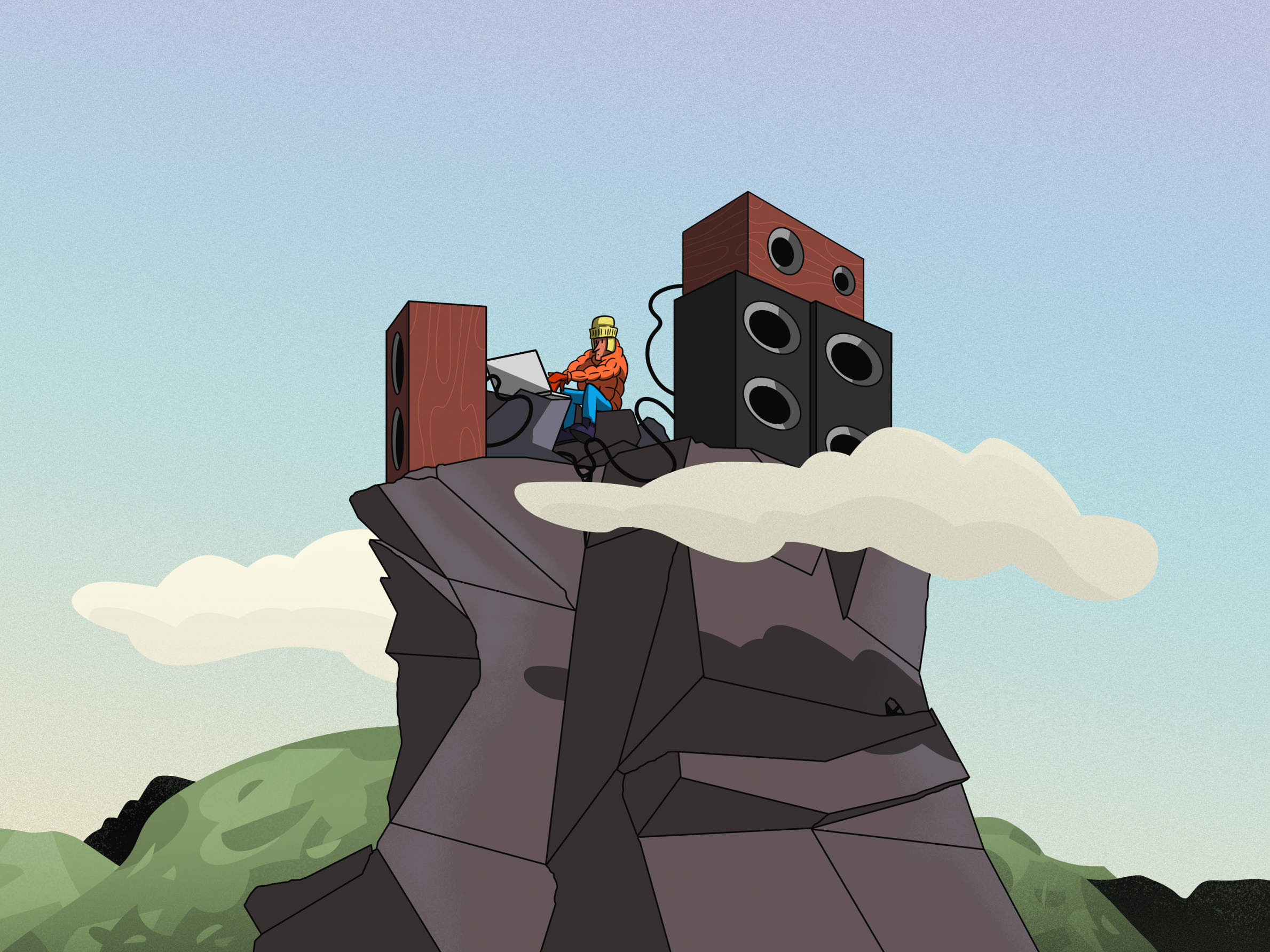When was the last time you screamed? Is it really what we need?
The last time I truly screamed, I was probably six, although there are many times when I feel I could these days. Well Iceland is on hand to help you let your scream out and feel better about it, writes Christine Manby


Scream if you want to go faster? Not this year, thank you very much. While a trip to a theme park may be back on the agenda for the summer hols, screaming your lungs out from the top of The Big One is now considered distinctly bad manners. Along with singing and talking really loudly, screaming is an issue in this post-Covid word because of the risk of your infected droplets landing on someone else’s face (Ugh. The word “droplet” is the new “gusset” for me).
In Japan, they have gone so far as to ban screaming in their theme parks, asking visitors instead to “Please scream inside your heart.” Haven’t we all been doing that every day since March? I’m not sure I know any other way.
I don’t remember the last time I screamed out loud. Possibly I was six. My preferred method since then has been to go into the bathroom, lock the door, and stand in front of the mirror with my hands on either side of my head while I mime the classic scream from Edvard Munch’s painting. It’s quiet but effective. It feels the way I imagine real screaming would, but when I come out of the bathroom, it’s as if it never happened. No one has to ask, “Are you OK?” Meaning that I don’t have to say, “Of course I’m not OK, you f***ing f***wit.” Which would be hard for someone raised the way I was. I like the silent approach. I’ve had a quick “scream”. No one else is any the wiser and I’m ready to go about my day, imagining I’m shooting lasers from my eyes at the person who sent me running to the bathroom for my Munch moment in the first place.
But if you’re not a world-class champion at “not saying/screaming what you think so that everyone else can have a nice Christmas/Easter/ birthday/Monday” rest assured that help is at hand. The Icelandic tourist board has come up with a unique way to help you let out all that rage in a safe but suitably noisy fashion. While you may not be able to visit the island of the Blue Lagoon this year, you can send your anxieties ahead of you. Those generous Icelanders say, “You’ve been through a lot this year and it looks like you need the perfect place to let your frustrations out. Somewhere big, vast and untouched. It looks like you need Iceland. Record your scream and we’ll release it in Iceland’s beautiful, wide-open spaces. And when you’re ready, come let it out for real. You’ll feel better, we promise.”
You can record your scream on their website, here. Make sure it’s a good one. The website shows you where it might be played on a natty yellow speaker.
Zoe Aston, MSC, a therapist and mental health consultant, explains why screaming works to make us feel better. “Screaming as a therapeutic tool was developed in the 1970s as a way to release pent-up emotion. What we don’t realise is that the psychological response to wanting to scream lights up a part of our brains called the amygdala. The amygdala activates when we are under threat. Something we have all experienced in the past few months. Part of the beneficial effect of screaming comes from being able to make a loud noise into a wide, open, undisturbed space. This literally allows your amygdala to release the stress stores and move forward.”
As Aston points out, screaming as therapy is nothing new. Primal Scream Therapy, more commonly known as Primal Therapy, is a branch of trauma-based psychotherapy, created by American psychologist Arthur Janov. Janov believed that all neurosis has its basis in the repressed pain of childhood trauma. Through Primal Therapy that pain is brought to light through reenactment, offering the patient an opportunity to express the anger they didn’t express at the time through screams and other physical reactions. Janov thought that by doing this, the patient would be able to activate those parts of the central nervous system that could not be reached by classical talking therapies. In Janov’s view, re-experiencing childhood pain and reacting in a visceral fashion was the only way to integrate it and lessen its effects on adult behaviour.
The danger here is suggesting inappropriate expressions of anger that are potentially damaging to others as healthy or acceptable
Famous advocates of Primal Therapy included John Lennon and Yoko Ono. Lennon abandoned Primal Therapy after four months but later admitted to having experienced some changes as a result, saying: “I just know myself better, that’s all. I can handle myself better. That Janov thing, the primal scream and so on, it does affect you, because you recognise yourself in there ... It was very good for me. I am still primal and it still works and I no longer have any need for drugs.”
Since its heyday in the Seventies Primal Therapy has all but fallen out of favour. Scientific research into the method failed to show the benefits Janov claimed. A 2010 review of “Lay theories of psychotherapy” published in Psychotherapy, Health and Medicine, found that Primal Therapy (also known as rebirth therapy) was considered to be “ineffective” by the 200-plus participants questioned. However it is still practised. Apparently Kanye West tried it under the auspices of motivational speaker Tony Robbins. Robbins instructed West to stand in a warrior pose and scream his heart out. West said of the experience: “I was so self-conscious about the nanny and the housekeeper that I didn’t want them to hear me screaming in the living room. I think that that’s such a metaphor of something for the existence of so-called well-off people that they’re not really well-off – they won’t even scream in their own house.”
But talking to Shape.com, psychotherapist Gin Love Thompson PhD explained the problem with just letting rip. “The danger here is suggesting inappropriate expressions of anger that are potentially damaging to others as healthy or acceptable. The key is learning healthy ways to express our anger and the vital tools responsible for the processing of it.” It’s not enough just to “let it all out”. You need to have the support in place to manage the feelings and emotions you might trigger as a result.
On the “Looks like you need Iceland” website, you can listen to the screams of those who have already uploaded their angst. I wouldn’t recommend it. If your own screams help your amygdala to relieve stress and “move forward”, then listening to the screams of other people surely has the very opposite effect. I fear for the mental health of the poor Icelandic tourist agency workers who had to carry those recorded screams out into the wilderness. I hope they were provided with ear defenders and counselling.
I haven’t added a scream of my own, of course. The website landing page features footage of waves lapping against the shore near a lighthouse in Kalfshamarsvik, north Iceland, and it strikes me that the sound of the waves lapping on the grey-pebbled beach is infinitely more calming than the thought of recording a yell straight from hell to be played over them. Likewise, the view of Skogarfoss, with its whispering grass, distant waterfall and occasional birdsong, is the perfect tonic precisely for its lack of human noise. And I suspect that anyone who looks at that view and feels compelled to scream over it, is exactly the kind of person I would be shooting invisible eye lasers at in real life.
Thank you, Iceland, for your kind offer of emotional support in this difficult year, but I’m with the Japanese on this one. Pull the faces and feel the feelings all you want to, but please scream inside your heart.
Join our commenting forum
Join thought-provoking conversations, follow other Independent readers and see their replies
11Comments